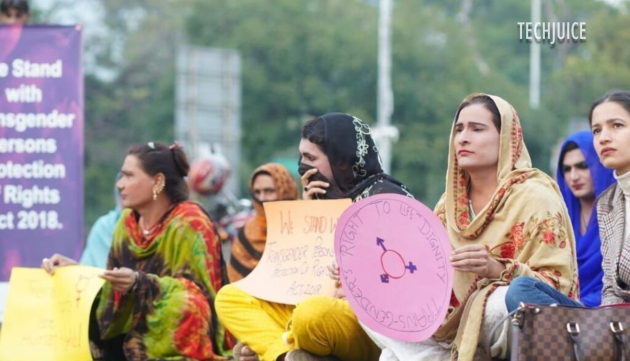

The draft of Pakistan’s first-ever Transgender Education Policy has been approved by the Sindh government. The policy, which was approved in a meeting chaired by Sindh’s Minister of Education and Mines & Minerals Development, Syed Sardar Ali Shah, proposes the addition of a separate category for transgender children in school and college admission forms, alongside male and female options.
The policy also includes provisions for employment quotas for transgender individuals in the recruitment of teachers. The provincial cabinet will now be presented with the draft for legal sanction.
The meeting was attended by key officials, including Sindh’s Secretary of School Education Zahid Ali Abbasi, Chief Executive Adviser Fozia Khan, Director of Non-Formal Education Abdul Jabbar Mari, and Deputy Director Atif Vighio, were present at the meeting.
Pakistan is home to 20,331 transgender individuals, with 4,222 of them domiciled in Sindh, as per the 2023 census. Nevertheless, the number of transgender individuals who are only marginally literate is 42%, and 40% have no access to education, according to research conducted by USAID. Charity Trans Action Pakistan data indicates that this figure is closer to 250,000.
The policy’s draft has been developed through extensive research and consultation with the transgender community, which has revealed that Sindh is home to approximately 22,065 transgender individuals.
Minister Shah underscored the substantial obstacles that transgender individuals encounter when attempting to obtain an education, identifying societal prejudice, harassment, financial constraints, and restricted employment opportunities as the primary obstacles. Additionally, he identified the absence of a curriculum that is specifically tailored to the distinctive requirements of transgender students.
The policy includes provisions for special schools and non-formal education training facilities, as well as teacher training to comprehend the psychological and educational obstacles encountered by transgender children, in order to address these disparities.
The policy also endeavors to establish an anti-harassment environment in educational institutions to guarantee the safety and identity of transgender students. In order to improve employment prospects, skill development programs for transgender individuals are incorporated, and public awareness campaigns will be implemented to advocate for equal opportunities and rights for transgender individuals.
Minister Shah underscored the necessity of societal awareness and the significance of education in facilitating the acquisition of respectable employment for transgender individuals. He also mentioned that discussions will be conducted with the Benazir Income Support Program to provide educational resources to underprivileged transgender individuals.
The Sindh government intends to implement awareness campaigns through television, radio, social media, and periodicals to underscore the importance of transgender education and equal rights, following their approval by the provincial cabinet. This policy represents a substantial stride toward the establishment of a more inclusive education system in Sindh.
Spotify has announced a partnership with ElevenLabs, a leading AI audio provider, to introduce AI-narrated…
Jetour, a newly launched automotive brand in Pakistan, has announced its intentions to introduce two…
Consumer-grade spyware, commonly known as stalkerware or spouseware, is an ongoing security concern for Android…
Google is preparing to introduce "YouTube Premium Lite," a more affordable subscription tier aimed at…
OpenAI has announced the expansion of its AI-powered agent, Operator, to ChatGPT Pro subscribers in…
ISLAMABAD: Pakistani education fintech startup EduFi has won LEAP 2025, securing the top spot at…